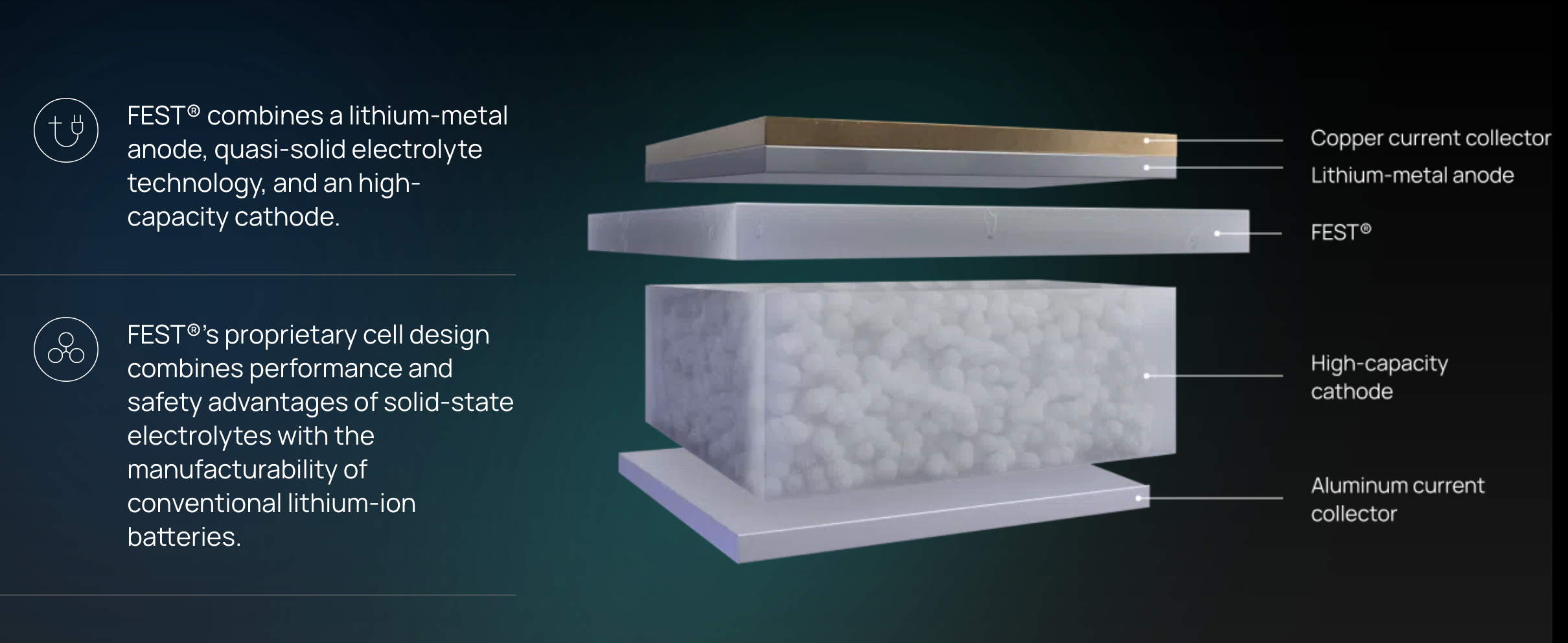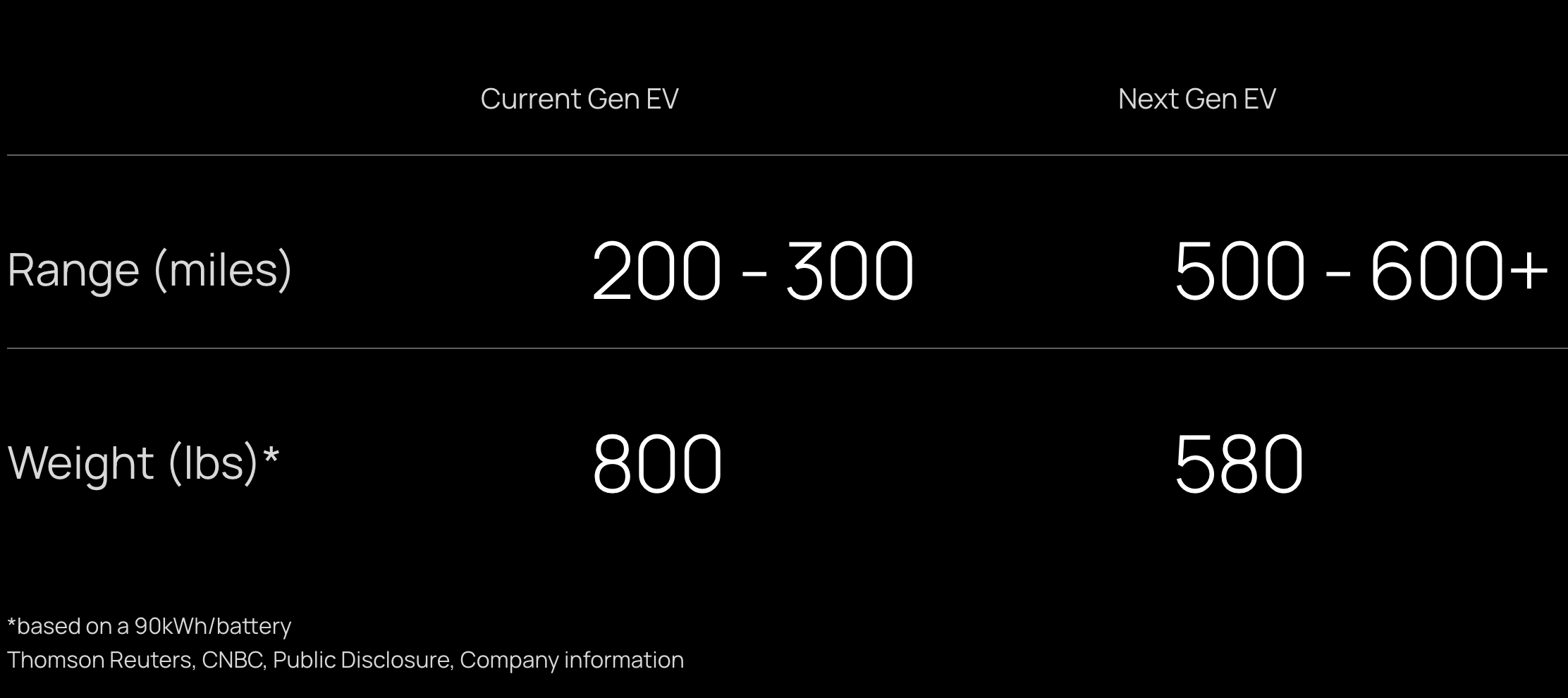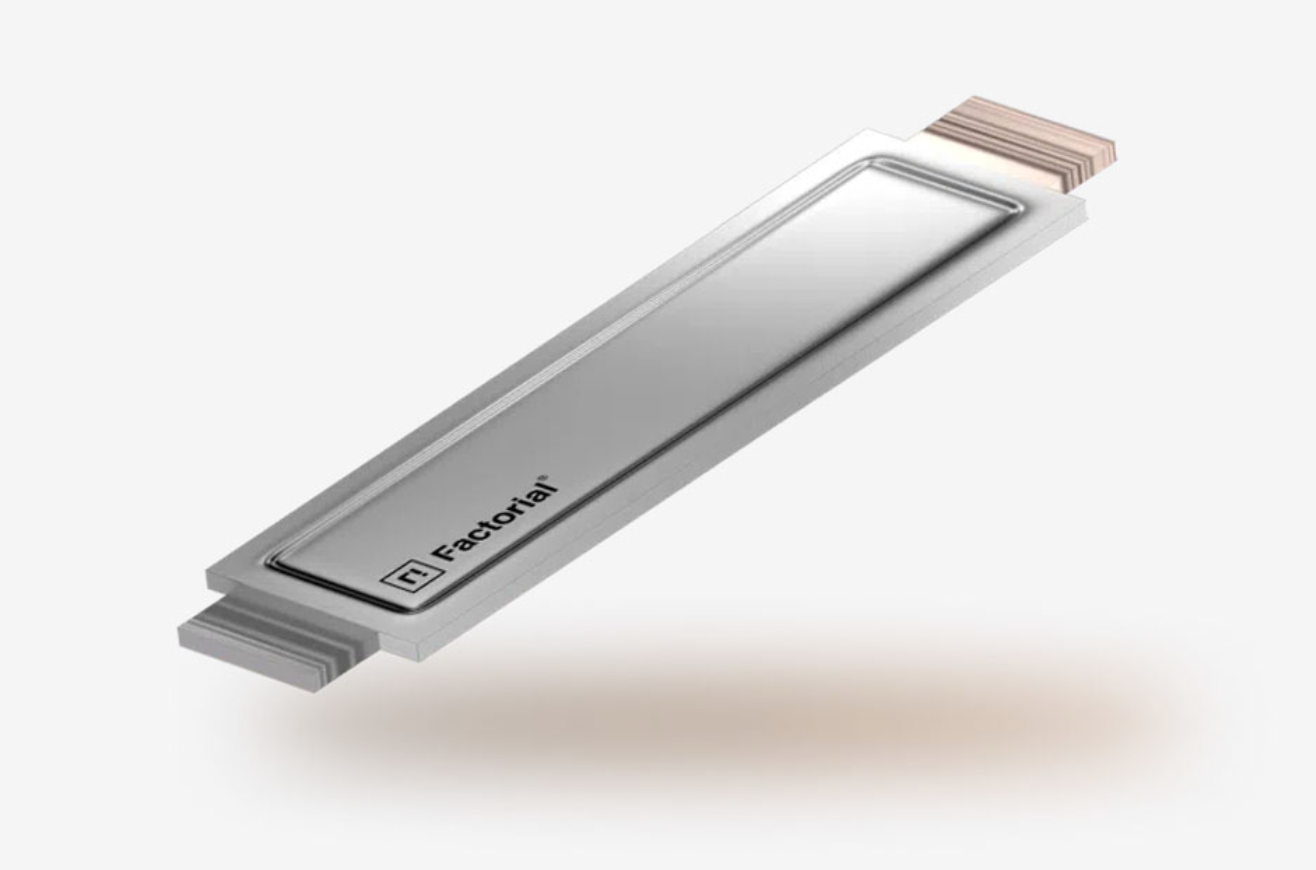Solid-state battery developer Factorial Energy has delivered B-samples of its cells to Mercedes-Benz. The German company is now integrating these into modules and battery packs before extensively testing them. The American company has also publicized an energy density value for the first time: 391 Wh/kg.
According to Factorial Energy, the B samples are solid-state battery cells with a charging capacity of more than 106 Ah, which are now being explicitly passed on to Mercedes-Benz.
At the beginning of October 2023, when the first deliveries of the A samples, a preliminary stage of the current cells, were being discussed, there was still talk of several car manufacturers as recipients.
Factorial states that this is “the world’s first announced B-sample delivery of solid-state battery cells to a global automaker.” This is hard to verify; competitor QuantumScape, for example, has A-samples in circulation, but whether B-samples are also available is unknown.
Forerunner
Factorial Energy is an American developer of solid-state battery cells supported by Mercedes-Benz, Stellantis, and Hyundai-Kia. It opened its first development and production facility near Boston in autumn 2023.
With a capacity of 200 MWh, this will be the largest production line for solid-state batteries in the U.S. to date. The funds for the factory’s construction come, among other things, from a $200 million financing round concluded at the beginning of 2022, which Stellantis and Mercedes-Benz led at the time.
There are undisclosed development agreements with these two car manufacturers and Hyundai-Kia. With regard to Mercedes, the American company now specifies that it “shipped over 1,000 100+Ah solid-state battery cells to Mercedes-Benz as part of the A-sample phase.”
Factorial Energy now describes the next phase as crucial, as the B-samples will be used to validate the module and pack designs against Mercedes-Benz’s own performance specifications.
391 Wh/kg
Factorial is relying on its ‘FEST’ technology (Factorial Electrolyte System Technology) with lithium metal anode for the cells, which is said to have the potential to “radically reduce the weight of electric vehicles, increase the range, shorten the charging time and improve safety”.

For the first time, the company also mentions a specific energy density value in its latest press release, namely 391 Wh/kg. The developer doesn’t specify whether this is at the cell or system level.
However, Factorial emphasizes that solid-state batteries can be manufactured on existing lithium-ion battery production systems. Only minimal modifications are required.
Rapid progression
“We are thrilled to advance to the B-sample phase and to mark this milestone with a global automotive leader like Mercedes-Benz,” said Siyu Huang, CEO and co-founder of Factorial. “This swift progression from A-sample to B-sample delivery in under a year highlights Factorial’s rapid innovation capabilities, and we continue to push the envelope to accelerate the adoption of solid-state batteries in the automotive sector.”
“We are committed to leading in innovative battery technologies, and our partnership with Factorial is a significant part of this strategy,” replied Markus Schäfer, Chief Technology Officer at Mercedes-Benz.
“These B-sample batteries allow us to validate this next-generation battery technology further to enhance range and performance, reduce overall vehicle costs, and offer our customers the most desirable electric vehicles.”
Factorial Energy attracted attention a few weeks ago with the announcement that it intends to work together with South Korea’s LG Chem on new battery materials.
Both sides are also planning to hold talks on the licensing of solid-state battery technologies and material supplies at a later date. In April, the duo announced that the aim was to make good progress in the commercialization of solid-state batteries.





Comments
Ready to join the conversation?
You must be an active subscriber to leave a comment.
Subscribe Today